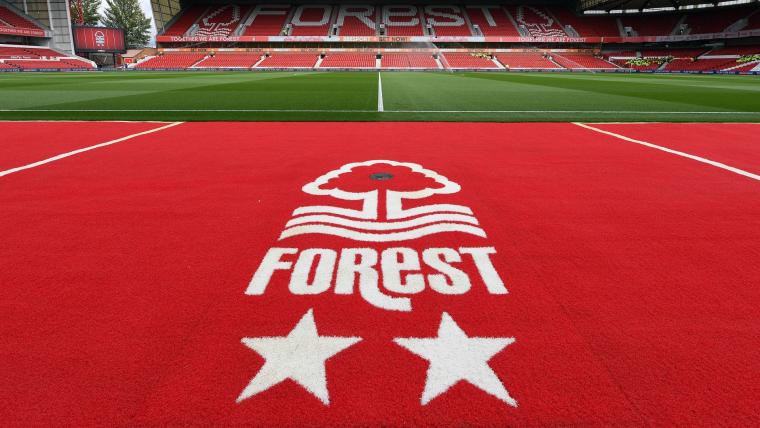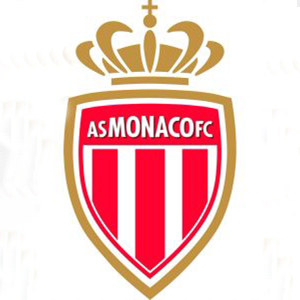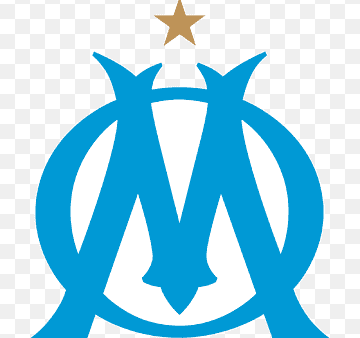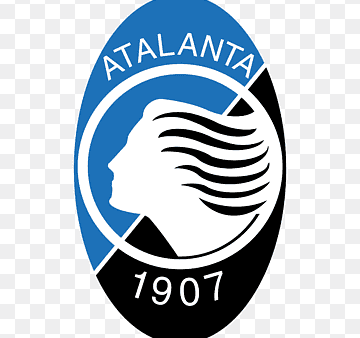Discover the rich history and passionate culture of Nottingham Forest Football Club, one of England’s most storied football teams. From their legendary victories in the European Cup to their dedicated fan base at the City Ground, Nottingham Forest embodies the spirit of football. Explore their current squad, recent performances, and upcoming fixtures, and join the excitement of supporting the Reds in the Premier League. Stay updated with the latest news, match highlights, and insights into this iconic club!
Nottingham Forest Football Club, located in Nottingham, England, is a professional team competing in the Premier League for the 2024-25 season. They play their home matches at the City Ground.
Founded in 1865, Nottingham Forest had their first official match on March 22, 1866, facing off against Notts County. The club secured their first FA Cup title in 1898. During the 1958-59 season, Forest made it to the FA Cup final, winning 2-1 against Luton Town, which marked the start of their 20th-century trophy success.

Brian Clough became the manager on January 6, 1975, and by 1977, Nottingham Forest had ascended from the lower leagues to the top tier of English football. In their first season back in the top flight, the club claimed their first league championship and also captured the League Cup.
The 1978-79 season saw Nottingham Forest finish as runners-up in the First Division while also winning the European Cup, which would later become the UEFA Champions League. They successfully defended their title in the 1979-80 season, adding the European Super Cup to their achievements, making them the only club to have won the Champions League more times than their domestic league titles.
However, after finishing at the bottom of the Premier League in the 1999-2000 season, the club entered a prolonged period in the lower divisions, even experiencing a drop to League One from 2005 to 2008. This downturn made them the only former European champions to fall to the third tier of English football.
In the 2021-2022 season, Nottingham Forest finished fourth in the Championship, securing a playoff spot. They triumphed over Huddersfield with a 1-0 victory in the playoff final, marking their return to the Premier League after a 23-year hiatus.
On September 14, 2024, Nottingham Forest achieved a significant 1-0 away victory against Liverpool during the fourth round of the Premier League.
Nottingham Forest LINEUPS 2024-2025
Goalkeepers
- Matz Sels
- Carlos Miguel dos Santos Pereira
Defenders
- Williams
- Toffolo
- Boly
- Aina
- Omobamidele
- Murillo
- Zach Abbott
- Nikola Milenkovic
- Moreno
- Morato
Midfielders
- Gibbs-White
- Ryan Yates
- RemoFreuler
- Danilo
- Ibrahim Sangaré
- Vicolás Dominguez
- Elliot Anderson
- Ben Perry
- James Ward-Prowse
Forwards
- Taiwo Awoniyi
- Chris Wood
- Anthony Elanga
- Emmanuel Dennis
- Callun Hudson-Odoi
- Eric da silva Moreira
- Jota Silva
- Ramón Sosa
Club History
Founding Years
In 1865, a group of players in Nottingham who were enthusiastic about shinney (a game similar to hockey) gathered at the Clinton Arms on Shakespeare Street and decided to establish Nottingham Forest Football Club. Initially, the club was founded by 15 members. On March 22 of the following year, Nottingham Forest played their first official match against Notts County.
During the 1878-79 season, Nottingham Forest made their debut in the FA Cup, winning their first match against Notts County with a score of 3-1. They progressed to the semifinals but faced defeat against Old Etonians, losing 1-2 and failing to reach the final. In 1888, the English Football League was formed, but Nottingham Forest’s application for membership was rejected. It wasn’t until 1892, after winning the Football League Second Division, that they finally secured a place in the English Football League.
In the 1897-98 season, Nottingham Forest made a remarkable run in the FA Cup, defeating Grimsby, Gainsborough Trinity, West Bromwich Albion, and Southampton to reach the final against Derby County. Despite losing 0-5 to Derby in the league just five days prior, Forest avenged that defeat by winning the FA Cup final 3-1 in front of 62,000 spectators.
In 1898, after raising £3,000, Nottingham Forest moved their home ground from Forest Ground to what is now known as the City Ground. During the 1900-01 season, they achieved a commendable fourth place in the First Division but subsequently fell into a decline, relegating to the Second Division and facing financial difficulties on the brink of World War I. Fortunately, generous donations from committee members helped the club overcome this financial crisis.
Steady Development
After returning to the First Division, Nottingham Forest reached the FA Cup final in the 1958-59 season against Luton Town. Despite losing to Luton in the weeks leading up to the final, Nottingham Forest triumphed 2-1 in the final, capturing their first trophy of the 20th century. Under manager Johnny Carey in the 1966-67 season, Forest aimed for a double but faced a wave of injuries that derailed their efforts, finishing second in the league and reaching the semifinals of the FA Cup. Although they didn’t win, it remains one of the club’s greatest seasons. After this peak, Nottingham Forest experienced another decline, with three managerial changes and struggles in the Second Division after 1972.
Golden Era
On January 6, 1975, Brian Clough became the manager of Nottingham Forest, leading them alongside assistant coach Peter Taylor. In 1977, the club was promoted from the Second Division to the First Division, winning their first top-flight title and the League Cup in their first season back. In the 1978-79 season, Forest finished as runners-up in the First Division and won the European Cup (now known as the UEFA Champions League). The following season, they successfully defended their European Cup title and also claimed the European Super Cup, making them the only team to have won the Champions League more times than their domestic league.
In the 1980s, despite the departure of assistant coach Peter Taylor, Nottingham Forest continued to succeed under Clough, winning the League Cup in the 1988-89 and 1989-90 seasons and claiming the Football League Cup in 1988-89 and 1991-92. However, dissatisfaction grew over Clough’s management, leading to his announcement on April 26, 1993, that he would leave the club at the end of the season.
Ups and Downs
After Clough’s retirement, Frank Clark took over as manager. Early in his tenure, the club underwent significant changes, with key players leaving and new signings joining. In the 1993-94 season, Nottingham Forest invested over £10 million in the transfer market, successfully returning to the Premier League. During the 1995-96 season, they reached the quarter-finals of the UEFA Cup. However, the club faced severe financial difficulties in the summer of 1996, with a deficit of £11.3 million.
A turning point came on February 24, 1997, when the Bridgeford Group acquired Nottingham Forest. The 1996-97 season began poorly, with the club failing to win for 16 matches after a 3-0 victory against Coventry, ultimately finishing at the bottom and being relegated. In the 1997-98 season, the team bounced back strongly, achieving six consecutive wins to start the league and winning the Second Division title, returning to the Premier League.
From the 1999-2000 season, Nottingham Forest again finished at the bottom and faced a prolonged stay in lower divisions, including a stint in the Third Division from 2005 to 2008, making them the only former European champions to drop to the domestic third tier.
From 2008 to 2022, Nottingham Forest competed in the Championship, with Greek businessman Evangelos Marinakis becoming the new owner in 2017. In 2021, Steve Cooper was appointed as the new head coach.
Return to the Premier League
In the 2021-22 season, under Steve Cooper’s management, Nottingham Forest finished fourth in the Championship and reached the playoff. They narrowly defeated Sheffield United in the semifinals via penalties and won the final against Huddersfield Town 1-0, marking their return to the Premier League after 23 years. In the 2022-23 season, they finished 16th in the Premier League, and in the 2023-24 season, they were 17th, narrowly avoiding relegation. On September 14, 2024, they achieved a significant 1-0 away victory against Liverpool in the Premier League.
Let me know if you need any adjustments or further assistance!
Club Honors
- English Top Flight Champions: 1977-78
- FA Cup Champions: 1897-98, 1958-59
- League Cup Champions: 1977-78, 1978-79, 1988-89, 1989-90
- Community Shield Champions: 1978
- Second Division Champions: 1906-07, 1921-22, 1997-98
- Third Division Champions: 1950-51
- Football League Trophy Champions: 1988-89, 1991-92
- European Cup Champions: 1978-79, 1979-80
- European Super Cup Champions: 1979
Kit Colors
Since its inception, Nottingham Forest Football Club has adopted the distinctive colors of the Italian “Red Shirts” and has chosen Garibaldi Red as its official color. The home kit prominently features this vibrant shade of red.
Club Badge

The current club badge of Nottingham Forest was introduced in 1974. After winning the European Cup in the 1978-79 and 1979-80 seasons, two stars were added to the badge to commemorate the club’s achievements in Europe.
Team Evaluation
Strengths:
- Historic Legacy: Nottingham Forest’s history is marked by significant achievements, particularly under legendary manager Brian Clough, which contributes to its passionate fan base.
- Youth Development: The club has a strong focus on developing young talent, which has been crucial for both team performance and financial sustainability.
- Tactical Flexibility: The team has demonstrated adaptability in its playing style, with managers often implementing strategies that suit the squad’s strengths.
Weaknesses:
- Inconsistency: Nottingham Forest has faced challenges with consistency in recent years, often struggling to maintain a stable performance level in the Premier League.
- Financial Limitations: Competing against richer clubs can be difficult, limiting their ability to attract high-profile players.
Defensive Vulnerabilities: At times, the team has shown weaknesses in defense, leading to costly mistakes in critical matches. - Current Outlook: The club is in a rebuilding phase, aiming to solidify its position in the Premier League after returning from the Championship. The management’s focus on strengthening the squad and instilling a winning mentality is essential for Nottingham Forest to regain its competitive edge and challenge for higher league standings.
Conclusion
Nottingham Forest Football Club stands as a testament to the rich history and enduring spirit of English football. With a legacy that includes two European Cup victories and a dedicated fanbase, the club has faced both triumphs and challenges throughout its journey. As it continues to compete in the Premier League, Nottingham Forest remains committed to building a bright future while honoring its storied past. The club not only serves as a source of pride for its supporters but also as an integral part of the community in Nottingham, ensuring that the Forest spirit lives on for generations to come.
















[…] Probability: Nottm Forest 35%, Newcastle 37%, Draw […]